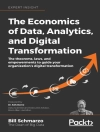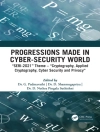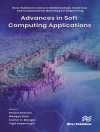This book collects chapters which discuss interdisciplinary solutions to complex problems by using different approaches in order to save money, time and resources. The book presents the results on the recent advancements in artificial intelligence, computational intelligence, decision-making problems, emerging problems and practical achievements in the broad knowledge management field. q-ROFS is one of the hot topics for all the researchers, industrialists as well as academicians. This book is of interest to professionals and researchers working in the field of decision making and computational intelligence, as well as postgraduate and undergraduate students studying applications of fuzzy sets.
The book helps solve different kinds of the decision-making problems such as medical diagnosis, pattern recognition, construction problems and technology selection under the uncertain fuzzy environment. Containing 19 chapters, the book begins by giving a topology of the q-ROFSs and their applications. It then progresses in a logical fashion, dedicating a chapter to each approach, including the generalized information measures for q-ROFSs, implementation of q-ROFSs to medical diagnosis, inventory model, multi-attribute decision-making and approaches to real-life industrial problems such as green campus transportation, social responsibility evaluation pattern and extensions of the q-ROFSs.
विषयसूची
q-rung orthopair fuzzy Supra Topological application in Data mining process.- q-Rung Orthopair Fuzzy Soft Topology with Multi-Attribute Decision-Making.- Decision-Making on Patients’ medical based on a q-Rung Orthopair Fuzzy Max-Min-Max Composite Relation.- Soergel Distance Measures for q-Rung Orthopair Fuzzy Sets and Their Applications.- TOPSIS Techniques on q-Rung Orthopair Fuzzy Sets and Its Extensions.- Knowledge Measure-based q-Rung Orthopair Fuzzy Inventory Model.- Higher Type q-rung Orthopair Fuzzy Sets: Interval Analysis.- Evidence-Based Cloud Vendor Assessment with Generalized Orthopair Fuzzy Information and Partial Weight Data.- Supplier Selection Process Based on CODAS Method using q-Rung Orthopair Fuzzy Information.- Group Decision-Making Framework with Generalized Orthopair Fuzzy 2-Tuple Linguistic Information.- 3PL Service Provider Selection with Q Rung Orthopair Fuzzy Based CODAS Method.- An Integrated Proximity Indexed Value and Q-Rung Orthopair Fuzzy Decision-Making Model for Prioritization of Green Campus Transportation.- Platform-Based Corporate Social Responsibility Evaluation with Three-Way Group Decisions Under Q-Rung Orthopair Fuzzy Environment.- MARCOS Technique by Using q-Rung Orthopair Fuzzy Sets for Evaluating the Performance of Insurance Companies in Terms of Healthcare Services.- Interval Complex q-rung Orthopair Fuzzy Aggregation Operators and Their Applications in Cite Selection of Electric Vehicle.- A Novel Fermatean Fuzzy Analytic Hierarchy Process Proposition and Its Usage for Supplier Selection Problem in Industry 4.0 Transition.- Pentagonal q-Rung Orthopair Numbers and Their Applications.- q-Rung Orthopair Fuzzy Soft Sets Based Multi-Criteria Decision-Making.- Development of Heronian Mean Based Aggregation Operators Under Interval-Valued Dual Hesitant q-Rung Orthopair Fuzzy Environments for Multicriteria Decision-Making.
लेखक के बारे में
HARISH GARG is Associate Professor at the School of Mathematics, Thapar Institute of Engineering and Technology, Patiala, India. He completed his Ph.D. in Mathematics from the Indian Institute of Technology Roorkee, India, in 2013. His research interests include soft computing, decision making, aggregation operators, evolutionary algorithm, expert systems, and decision support systems. With more than 330 papers published in international journals of repute, he has supervised more than 7 Ph.D. students. He is recipient of the Top-Cited Paper by India-based Author (2015–2019). He serves as Editor-in-Chief for the Journal of Computational and Cognitive Engineering and the Annals of Optimization Theory and Practice and Associate Editor for several renowned journals. His google citations are over 13, 000 with h-index 65.












